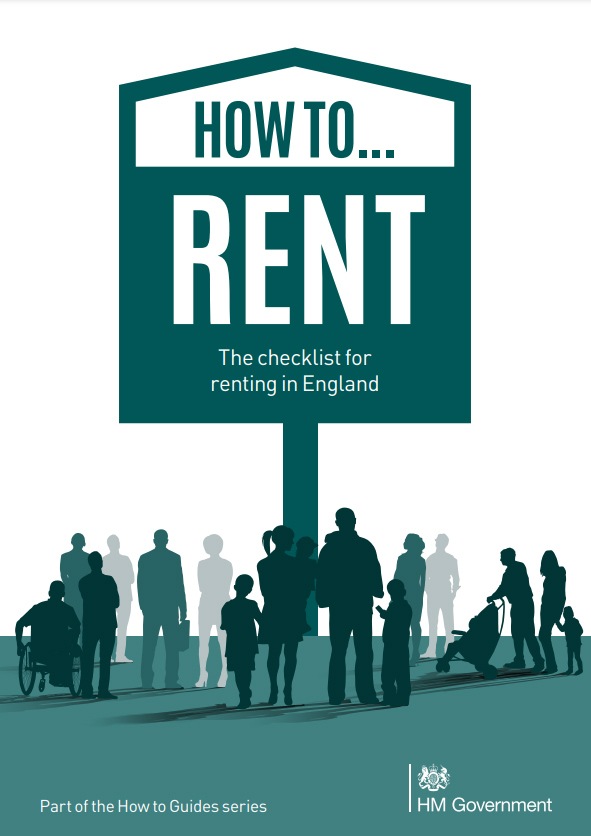
As part of “The Assured Shorthold Tenancy Notices and Prescribed Requirements (England) Regulations 2015“, private residential landlords in England are required to provide their tenants with a copy of the “How to rent: the checklist for renting in England” booklet issued by the Government.
Failing to comply could prevent landlords from repossessing their property with a Section 21 notice (currently the preferred and cleanest means of repossession).
Here’s what you need to know about the guide and how to comply with the regulations…
Table of contents
- How & When to serve tenants with the How to Rent Guide
- Do landlords need to re-issue a new copy if the fixed term ends and rolls into a periodic tenancy?
- What if I don’t serve a copy of the rent guide to my tenant?
- Download Rent Guide Receipt of Acknowledgement Form
How & When to serve tenants with the How to Rent Guide
Landlords in England (yes, just England) must serve their tenants with an up to date version of the government issued “How to rent: the checklist for renting in England” guide at the beginning of new tenancies that started on or after October 2015.

How to rent: the checklist for renting in England
The new Section 21 legislation can be found here, but I’ll copy/paste the bit specific to the “How to rent” guide:
Requirement for landlord to provide prescribed information
3. –
- (1) A landlord under an assured shorthold tenancy of a dwelling-house in England, or a person acting on behalf of such a landlord, must give the tenant under that tenancy the information mentioned in paragraph (2).
- (2) The information is the version of the document entitled “How to rent: the checklist for renting in England”, as published by the Department for Communities and Local Government, that has effect for the time being.
- (3) The information may be provided to the tenant –
- (a) in hard copy; or
- (b) where the tenant has notified the landlord, or a person acting on behalf of the landlord, of an e-mail address at which the tenant is content to accept service of notices and other
documents given under or in connection with the tenancy, by e-mail.- (4) Paragraph (1) does not require a landlord, or person acting on behalf of the landlord, who has provided the tenant with the document mentioned in paragraph (2) to supply a further copy of the document each time a different version of that document is published during the tenancy.
- (5) This regulation does not apply –
- (a) where the landlord is a private registered provider of social housing; or
- (b) where –
- (i) the tenancy (“the new tenancy”) is a replacement tenancy;
- (ii) the landlord, or a person acting on behalf of the landlord, provided the tenant with the document mentioned in paragraph (2) under an earlier tenancy; and
- (iii) the version of the document provided to the tenant under the earlier tenancy is the same version as the version which is in effect on the first day of the new tenancy.
- (6) In this regulation “replacement tenancy” has the same meaning as in section 21(7) of the Act.
In simple/normal/human terms…
- Serve – you can serve a hardcopy (printed version) or email a digital version where the tenant has supplied an email address. The booklet should be served at the start of the tenancy.
- Up-to-date – the booklet is likely to get updated over time, so it is important to serve the most up-to-date version available at the time of the start of the tenancy. However, you don’t need to keep providing a copy when new versions are released.
- New tenancies – if a tenancy is renewed (e.g. new contracts signed with the same tenants) there is no need to serve a new copy of the booklet unless a new version has been released- that’s something you’ll need to check at the relevant time.
In short, someone out there believes a generic, flimsy booklet on renting will improve/help the lives of tenants, and not end up as lining for kitty litter trays. I personally admire the optimism.
Do I need to provide my tenant with a new copy if the fixed term ends and rolls into a periodic tenancy?
When a tenancy rolls over into a periodic tenancy after the fixed term expires, it is technically a new tenancy. So on that basis, if a new guide is issued by the Government when a tenancy rolls into a periodic tenancy, the tenant should be provided with the latest version.
A fellow landlord recently informed me that their Section 21 notice was invalidated because they didn’t provide an up-to-date copy of the guide when the tenancy rolled into a periodic tenancy. It ended up delaying the repossession process by several months.
What if I don’t serve a copy of the rent guide to my tenant?
From what I’m aware, serving the guide isn’t a legal requirement, so you won’t get prosecuted for not doing it (at the moment). However, as it is part of the Section 21 regulations, it does mean landlords won’t be able to repossess their property with a valid Section 21 notice without complying (i.e. providing their tenant with the booklet).
That’s certainly something that should not be taken lightly.
Being disqualified from serving a valid section 21 can make it extremely difficult for landlords to efficiently repossess their property, especially when dealing with rogue tenants. Yes, if the tenant breaches the terms of the tenancy (e.g. falls into 2 months’ arrears), then landlords can still serve a Section 8, but that’s generally a much messier route.
Basically, it’s simply better to serve the damn booklet at the beginning of the tenancy and follow all the other section 21 requirements.
Rent Guide Receipt of Acknowledgement Form
In light of the introduction to the changes to the Section 21 legislation for Landlords in England, it is imperative landlords provide new tenants (and tenants that renew) an up-to-date version of the booklet.
In order to protect myself, I make my tenants sign a receipt of acknowledgement form, which confirms that they have been provided with an up-to-date version. You can download a copy by entering your name and email address below.
It has been argued that sending a copy by email leaves behind a digital footprint in the sentbox/outbox, but I prefer sending a hard-copy of the booklet and getting a signature confirmation. That’s just how I roll.
Disclaimer: I'm just a landlord blogger; I'm 100% not qualified to give legal or financial advice. I'm a doofus. Any information I share is my unqualified opinion, and should never be construed as professional legal or financial advice. You should definitely get advice from a qualified professional for any legal or financial matters. For more information, please read my full disclaimer.


 Landlord Products / Services
Landlord Products / Services




























Thank you, didn't even know about this!